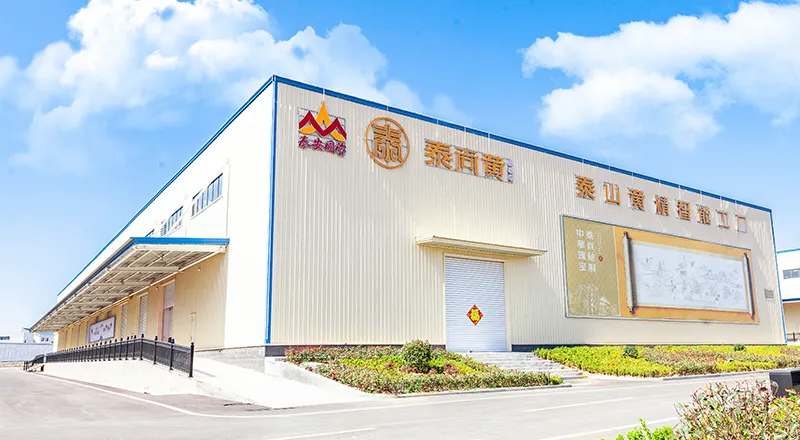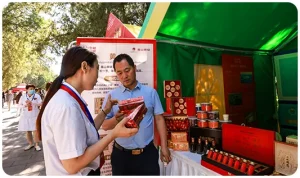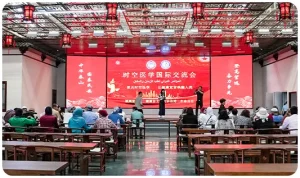Blog Center
search
Related blog
contact us
contact information
Our team responds quickly to all inquiries. Please feel free to contact us using the contact information below or the button below – we look forward to hearing from you!
Emperor Wu of Han and Taishan Polygonatum
In 10 BC, Emperor Wu of Han, Liu Heng, took the throne and after 10 years of hard work, all things were restored and the country was in great order. In 112 BC, the Boyang pendant around Qinshan was changed to the “Qinshan shape”. In 110 BC, the east was exiled.
In addition to showing merit to heaven and earth, he also sought the recipe for immortality. At the beginning of his reign, the alchemist said: If you meet an immortal, you can live forever. He also cited the example of Huangdi to prove it.
In March of that year, the Fengshan team came to the foot of Qinshan. From a distance, an old man was seen entering the mountain to collect herbs, but he saw a white light surrounding his head, as high as a foot. He was led closer by people. The old man looked like a fifty-year-old man, with a boyish face and smooth skin, which was different from the common people.
Emperor Shi asked, “How old is the old man?” The old man said, “I am 180 years old.” Emperor Wu was surprised and asked again, “What is the secret?” The old man said, “When I was 85 years old, my hair turned white and my teeth fell out. I was old and my hair was gray. I met a Taoist who taught me to abstain from food and only take magic and drink water. I followed his instructions and then I became young again. My white hair turned black and my teeth grew back. I can walk 300 miles a day.” Emperor Wu asked again, “What is magic?” The old man said, “Magic is Polygonatum sibiricum, a kind of medicinal herb. Taking it regularly can make people live longer.” Emperor Wu nodded in praise, and ordered people to give him gold coins and silk, but the old man refused to accept them. Emperor Wu asked again: “Where are you from? What’s your surname and name?” The old man shook his head and said nothing, and left with a big laugh. It is said that the old man went to Qinshan to practice, and returned to his hometown every ten or five years. He did not return for more than three hundred years, probably because there was no one in the village. Later, Xiao Xiezhong of the Ming Dynasty wrote a poem praising the old man of Qinshan: “Cinnabar bait keeps your face, and I occasionally step into the mortal world and come to Qinshan. Even if the Han emperor asks diligently, I will not leave my name in the world.” Emperor Wu saw the old man going away, and he couldn’t help laughing. When he came to Qinshan, he saw that it was cold in spring, and the grass and trees had not sprouted or grown leaves. He thought that the “art” the old man talked about was so good, why not let people collect it for use in a few days? So he issued an order to leave a small number of followers to Qinshan Xianyuan Valley to collect Huangjing, and the large group of people went east to the sea. In April, they returned to Qinshan and performed the Fengshan ceremony. He expressed his admiration and admiration for Qinshan: How high! How great! How big! How special! How magnificent! How affectionate! How childish! How confused!
This time, Emperor Wu was extremely happy. He not only saw the immortal (Qinshan’s father), but also performed the Fengshan ceremony on Qinshan. The conditions for becoming an immortal were already met. The only drawback was that he never found Huangjing. The scholars said: “Huangjing has spirituality. Only those who are willing can collect it.” The next year, Emperor Wu asked Qinshan about this. He fasted and bathed for three days, and went to Xiancao Valley to dig Huangjing. Seeing Huangjing’s bright and full color, fragrant and beautiful, he wanted to eat it. Wu Su thought: Huangjing is very beautiful. It is used by the royal family. The people will follow suit and compete to dig deep. It will soon be extinct. It must be conferred an official eye for it for the exclusive use of the royal family. What official position should he be given? Recalling that the pine tree that provided shelter for him during the Fengshan ceremony was named “the Five Great Pines”, he thought that he should give him a much higher position than the doctor, and blurted out “Taishang Huang”. The accompanying civil and military officials heard this, some shook their heads and said nothing, while others laughed. Emperor Wu of Han was very wise, knowing that he had made a mistake, and immediately explained: “Qin Shang Huang”, “Qin” is the Qin of Qinshan, which means peace and harmony; “Shang” is noble, which means respect and harmony; “Huang” represents the color, which not only contains the royal majesty, but also represents its name. So, Emperor Wu asked Xiao Huangmen to be the queen: “Fortunately, the emperor who carries out the destiny of heaven issued an edict: Huangjing from Qinshan is extremely precious, so it is specially granted the title of “Tai Shang Huang”. Now you have “Qinshan Na” to take care of it, and set up three officials, namely the Medical Department, the Thief Department, and the Decision Department, to take charge. The palace is not allowed to collect it, and the people are not allowed to collect it. This is it.” After that, Emperor Wu sealed Qinshan six times and used Huangjing as tribute every time.





